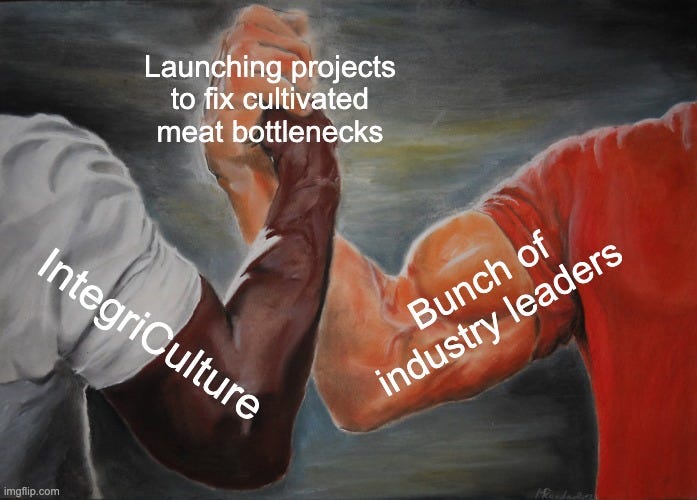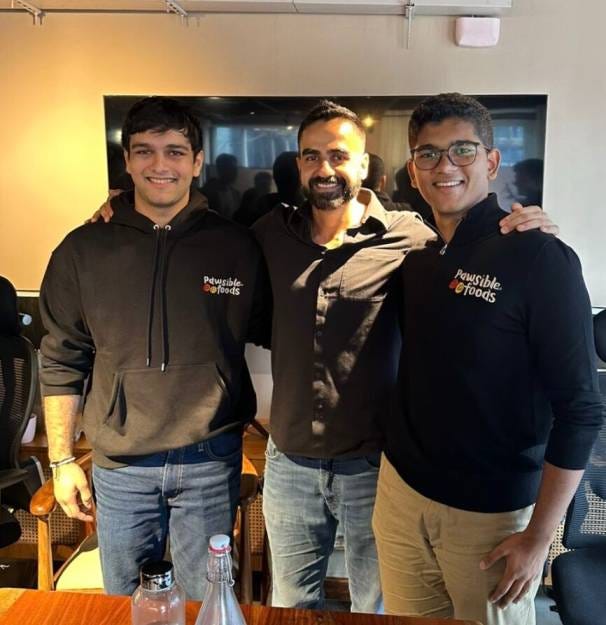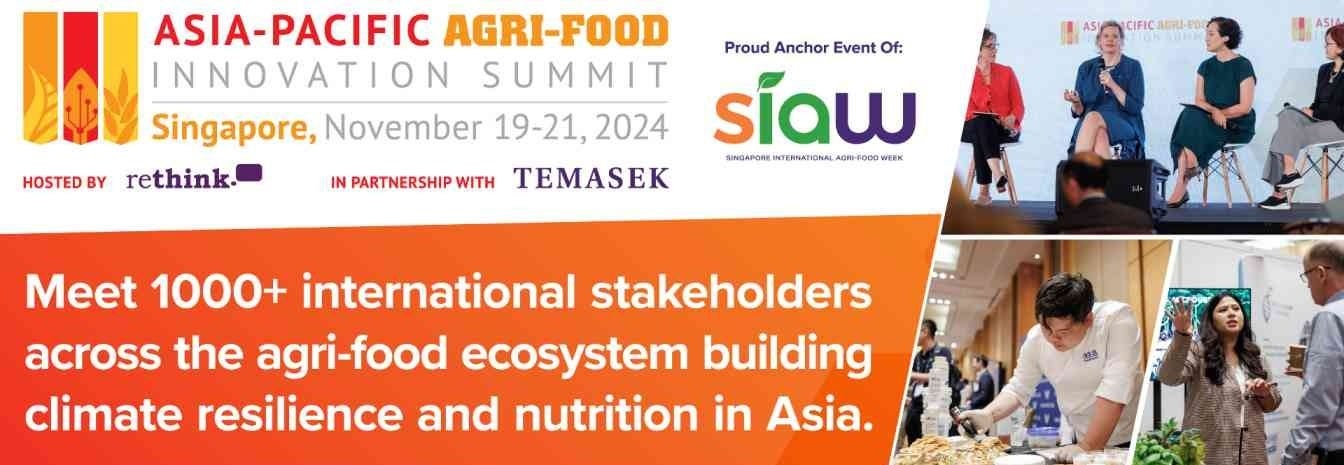Bezos-Backed Fund’s Singapore Hub, Beyond Meat Turns to Mycelium, and Carbon-Neutral Biofertilizers
Also: The real customers for cultivated meat aren’t everyday consumers – they’re the meat producers
Hey!
Welcome to issue #73 of the Better Bioeconomy newsletter. Thanks for being here!
Here’s my favourite quote that I came across while working on this week’s issue:
“Meat producers, not consumers, are the real customer of cultivated meat. Once you redefine who the customer is, product market fit falls right into place. What do meat producers need? Stable supply, stable prices, and consistency. In other words, their problem is resilience, and cultivated meat is the solution.”
Let’s dig into the latest developments in biotech, shaping the future of food and agriculture! 🍽
BIO BUZZ
🇯🇵 IntegriCulture launched five new joint projects under its CulNet Consortium to tackle major bottlenecks in the cultivated meat sector
CEO Yuki Hanyu said the cultivated meat industry faces major supply chain hurdles, like food-grade quality control and cost reduction. Solving these issues will pave the way for large-scale production.
The startup is partnering with industry leaders like TableMark, San-ei-gen FFI, and Nacalai Tesque to develop better, cheaper culture media and new methods for growing cells efficiently. UBE Group is also on board, helping to ensure a steady supply of essential growth factors.
Another key focus is food safety. IntegriCulture is developing new antibacterial tech using food-grade ingredients, all while working to make cultivated meat more affordable.
Source: Green Queen
🇺🇸 Beyond Meat plans to introduce a mycelium-based whole-cut steak, focusing on clean-label ingredients and low saturated fat
Beyond Meat is shifting gears to appeal to health-focused customers with the new product. It will debut at a health-focused restaurant chain (name wasn’t mentioned), steering away from fast-food giants like McDonald’s or KFC.
Made with mycelium, the steak aims to closely mimic the texture of a filet and provide a high-protein, low-fat alternative. No launch date has been announced yet.
As part of its turnaround, Beyond is focusing on cutting costs and raising prices while promoting its products' health benefits. Beyond has teamed up with organizations like the American Cancer Society to get the message across.
Source: CNBC
🇩🇰 21st.Bio earned self-determined GRAS status in the US for its animal-free beta-lactoglobulin, clearing the way for product launch
The company uses advanced precision fermentation technology, honed over decades and licensed from biosolutions giant Novonesis. With this technology, 21st.Bio is able to produce very high yields of proteins like beta-lactoglobulin.
21st.Bio has a unique business model. It offers technology, fermentation processes, and guidance to companies for large-scale production of their protein-based products.
In under two years, the company moved from early-stage development to regulatory approval and opened a pilot plant with a fermentation capacity of 3,000 litres.
Source: Green Queen
🇫🇮 Solar Foods achieved self-affirmed GRAS status for its Solein protein, moving it closer to entering the US market
Before Solar Foods can start shipping its Solein protein to the US, it needs to register its Finnish factory with the FDA. If all goes well, they could launch in the US by the end of this year.
Solar Foods' safety data was backed by expert panels and published in peer-reviewed journals, though the company plans to solidify trust by securing an FDA “no questions” letter by 2026.
Self-affirmed GRAS allows for quicker market entry by bypassing a full FDA review. It also protects proprietary information and trade secrets. But, a full FDA review could boost consumer trust and help expand their customer base.
Source: Green Queen
MACRO STUFF
🇦🇺 Australia could be a global leader in precision-fermented ingredients, according to a new paper by Cellular Agriculture Australia
Australia has a real opportunity to lead the global precision fermentation by transforming its $2 billion sugar industry into one that generates AUD 50-$80 billion by creating high-value dairy fats and proteins.
The country stands to gain an additional AUD 13 billion from precision fermentation’s role in the protein sector, helping meet growing protein demands at home and abroad—set to reach 8.5 million tons by 2030.
However, the industry faces major challenges, including steep production costs, challenges scaling up, unclear regulatory requirements, and limited government interest. To meet future demands, the infrastructure for precision fermentation will need to grow 180-fold by 2035.
Source: vegconomist
🇬🇧 Europe's first gene-edited wheat and barley trials to be conducted in the UK on conventional farms
The project, PROBITY, will gather feedback from farmers and could involve up to 25 farms, ensuring a broad look at how these crops fare in the field. With expert involvement from multiple research institutions, they’re set for thorough testing.
Two gene-edited crops will be tested: a barley variety with increased lipid content in the leaves to reduce methane emissions in cattle and a wheat variety with lower asparagine levels, which reduces acrylamide (a probable carcinogen) when cooked.
While it’s exciting, experts caution it’ll be a few more years before these gene-edited crops hit the shelves due to ongoing legislative work, including the Precision Breeding Act.
Source: Agriland
BIO BUCKS
🇸🇬 The Bezos Earth Fund launched its third $30M Centre for Sustainable Protein, this time at the National University of Singapore
This follows similar centres at North Carolina State University and Imperial College London. Each centre gets a $30M investment as part of a $100M push to advance alt protein research. The remaining $10M will be set aside to fund additional projects.
The new centre will focus on biomass fermentation, microalgae innovations, and hybrid meats that combine cultivated cells, plant-based ingredients, and fermentation. They aim to make these products taste as good as conventional proteins and compete on price and nutrition.
What’s also exciting is that the research and knowledge generated at these centres will be open-access, allowing companies and startups to use the findings and create products ready for the market. This could speed up the global shift toward sustainable proteins, making them mainstream sooner.
“The decision to do this in Singapore was a simple one…Singapore is an absolute powerhouse when it comes to alternative proteins – it was way ahead of so many other countries in the world.” - Andy Jarvis
Source: Green Queen
🇺🇸 Switch Bioworks raised $17M Series Seed round to advance carbon-neutral biofertilizer with nitrogen-fixing microbes
The biofertilizer uses engineered microbes that latch onto plant roots and start producing nitrogen. It replaces traditional fertilizers and promotes a sustainable approach to farming.
The product is designed to fit right into farmers' existing operations, so there’s no need for major adjustments. Plus, it’s expected to be more affordable than regular chemical fertilizers, so farmers could see considerable savings.
Beyond biofertilizers, Switch Bioworks has a platform for precision-engineered biological products, with plans to expand into other agricultural solutions and engage in industry partnerships.
Source: iGrow News
💰 More bucks
🇮🇳 Mycelium-based pet ingredients startup Pawsible Foods received a $25,000 non-dilutive grant from WTFund. (Armaan Dhanda)
🇳🇿 B2B cultivated meat company Opo Bio received funding from WNT Ventures. (WNT Ventures)
🇩🇰 Cultivated meat startup Meat Tomorrow raised DKK 4.1 million (~$607,200) to expand its R&D efforts and build partnerships. (Cell Base)
PODS & POSTS
💡 The real customers for cultivated meat aren’t everyday consumers – they’re the meat producers
Shoppers still choose meat based on price, taste, and convenience, not sustainability. So, even when cultivated meat matches regular meat in taste and cost, people likely won’t go out of their way to buy it just because it’s "cultivated."
The real customers for cultivated meat aren’t everyday consumers – they’re the meat producers. What they need is reliability: stable prices and supply. That’s where cultivated meat shines, especially in a world with climate change and unpredictable markets.
With beef prices hitting a 17-year high and shrinking cattle herds, the meat industry is feeling the heat from climate change, labour shortages, and disease risks. Cultivated meat could help stabilize this shaky supply chain.
Source: Steve Simitzis
👩🏻🚀 NASA astronaut and molecular biologist Dr. Kate Rubins on her groundbreaking work at the International Space Station
APAC AGRI-FOOD INNOVATION SUMMIT
🤝 Meet 1000+ global leaders who are accelerating climate-adaptation strategies for food security in Asia
Better Bioeconomy is excited to be a media partner for the Asia-Pacific Agri-Food Innovation Summit, taking place at Marina Bay Sands on November 19-21!
As the anchor event of Singapore International Agri-Food Week (SIAW), in collaboration with Temasek, the Singapore Food Agency (SFA), and Enterprise Singapore (ESG), the Asia-Pacific Agri-Food Innovation Summit will bring together over 1000 global leaders to identify the strategic priorities as we build greater capacity, security, and resilience in Asia’s agri-food system.
See you there! 👋🏾
SPOTLIGHT: FOOD JUNGLE
😋 Hungry for weekly updates on the broader food industry?
As a food biotech nerd, sometimes I crave a broader view of the food industry. That’s why I’m excited to share one of my favourite food newsletters: Food Jungle.
Food Jungle serves up a mix of insightful and lighthearted content, making complex topics in the food world accessible and engaging. Whether you’re deep into the food world or just curious, this newsletter makes learning about the industry fun and engaging. Check it out!
MORE ON BETTER BIOECONOMY
💬 My conversations with bioeconomy innovators
Biotech consultant and ex-CSO of Vow, James Ryall: Bridging Science and Business to Support Startups Using Biomanufacturing
Synonym's co-founder, Joshua Lachter: Financing and Developing Infrastructure for the Bioeconomy
Bioshyft's founder, Gerrit Feuerriegel: Connecting Innovators, Investors, and Incumbents to Drive the Bioeconomy
Terra Bioindustries’s CMO, Rebecca Palmer: Turning Agrifood Byproducts Into Nutrient-Rich B2B Ingredients
That’s a wrap. Thank you for taking the time to read this issue!
Are you new here?
Know anyone else who would dig this newsletter?








Wow, very cool newsletter. I like the humor you creatively wove into this excellent issue. The community appreciates all the hard work and considerable time it takes you to create each wonderful issue. You're doing the Lord's work bro. A+